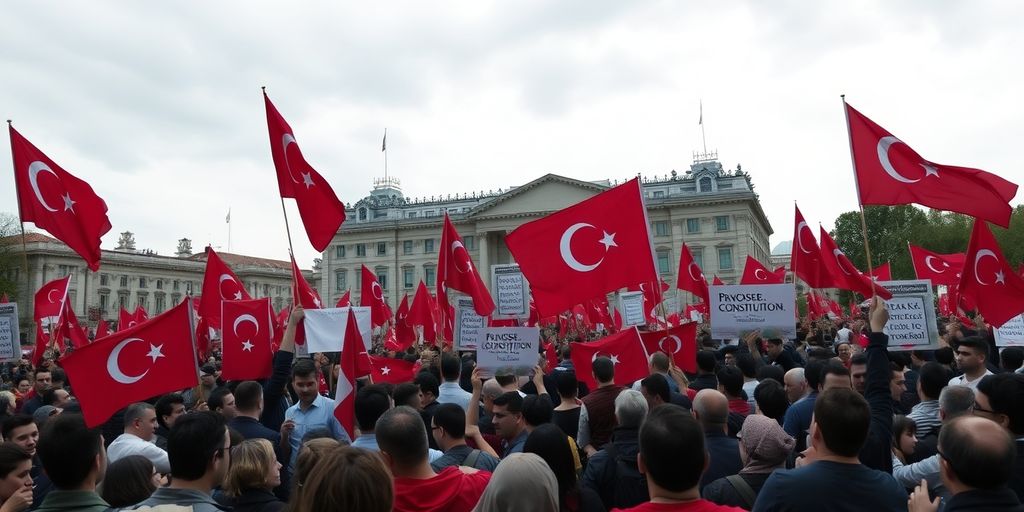President Recep Tayyip Erdogan of Turkey has announced the formation of a 10-member legal team tasked with drafting a new constitution. This initiative has raised concerns among critics who fear it may be a strategy for Erdogan to extend his rule beyond 2028, when his current term ends.
Key Takeaways
- Erdogan has appointed a team of legal experts to draft a new constitution.
- Critics argue this move could allow him to bypass term limits and remain in power.
- The current constitution, established after a military coup in 1980, is seen as outdated.
- Erdogan claims the new constitution aims to enhance democracy and civilian governance.
- The proposal comes amid ongoing political tensions and recent controversies surrounding opposition figures.
Erdogan’s Justification for a New Constitution
In a recent address to his party’s provincial organizations, Erdogan emphasized the need for a new constitution, stating that the existing one retains elements of military influence and does not reflect the current democratic aspirations of the Turkish people. He expressed a desire for a civilian and libertarian constitution that would better serve the nation.
Erdogan stated, "For 23 years, we have repeatedly demonstrated our sincere intention to crown our democracy with a new civilian and libertarian constitution." He hopes to engage other political parties in this process, indicating a willingness to collaborate across the political spectrum.
Concerns Over Extended Rule
Despite Erdogan’s assurances, many critics view the push for a new constitution as a potential pathway for him to extend his presidency. Under the current legal framework, Erdogan cannot run for re-election unless significant changes are made to the constitution or early elections are called. This has led to speculation that the new constitution could be designed to facilitate his continued leadership.
Political analysts suggest that Erdogan’s recent efforts to resolve the long-standing conflict with the Kurdistan Workers’ Party (PKK) may be part of a broader strategy to gain support from pro-Kurdish parties in parliament, which could help him secure the necessary votes to amend the constitution.
Political Context and Recent Developments
The announcement of the new constitutional initiative comes on the heels of significant political unrest in Turkey. The arrest of Istanbul’s popular mayor, Ekrem Imamoglu, on corruption charges has sparked widespread protests and raised questions about the independence of Turkey’s judiciary. Many view Imamoglu’s detention as politically motivated, further complicating the political landscape.
Erdogan’s government has faced increasing criticism for its authoritarian tendencies, and the recent constitutional proposal has intensified fears of further democratic backsliding. Critics argue that the move could undermine the rule of law and democratic institutions in Turkey.
Conclusion
As Turkey navigates this pivotal moment, the implications of Erdogan’s proposed constitutional changes remain uncertain. While the president insists that the new charter is intended to benefit the nation, the potential for extending his rule raises significant concerns among opposition leaders and civil society. The coming months will be crucial in determining the future of Turkey’s democracy and governance.
Sources
- Erdoğan sets a 10-member team for writing new charter, Hürriyet Daily News.
- Turkey’s Erdogan appoints legal team to draft new constitution, sparking fears of extended rule | National
News, Ottumwa Courier. - Turkey’s Erdogan appoints legal team to draft new constitution, sparking fears of extended rule, AP News.
- Erdogan denies bid to change Turkey’s constitution means he’ll run for presidency again, BBC.






